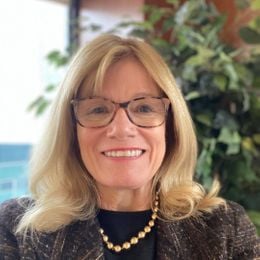Improving Health Requires More Than Better Health Care for Rural Older Adults
It's about access to public transportation, nutritious food, social services and more

(Editor's note: This content is provided by The John A. Hartford Foundation, a Next Avenue funder.)
Where and how we live affects our health in powerful and dramatic ways, especially as we age. Take, for example, the documented connection between living in a rural area, experiencing the effects of poverty and the high likelihood of having multiple chronic conditions.
The World Health Organization describes these "social determinants" of health as "the circumstances in which people are born, grow up, live, work, age and the systems put in place to deal with illness."
And these social factors are often magnified for older adults in rural areas who face myriad challenges related to lack of public transportation, scarcity of nutritious food (it's a big myth that people in rural areas have easy access to fresh vegetables), few integrated social services and difficulty in obtaining timely, affordable health care. This perfect storm plays out every day in rural communities like the one in which I grew up — an area just a few hours away from my office in New York City.
Bridging the Gap
Through promising interventions and collaborative work between local and national organizations, we're learning how to bridge critical gaps for our rural neighbors and improve their health in the process.
For example, the Rural Aging Initiative of Grantmakers in Aging — a John A. Hartford Foundation grantee — has identified innovative methods for tackling barriers to mobility, healthy eating and technology. To curb social isolation among older adults in Wickenburg, Ariz. — a town of 6,000 — the Arizona Age-Friendly Network developed a transportation program that offers free rides to residents 60 years and older. Thanks to the Freedom Express, riders can access medical appointments, senior center activities and more, five days a week. In the three years since it launched, the program has provided 9,000 rides.
Across the country in Aroostook County, Maine, an innovative collaboration makes it easier for rural seniors to access fruits and vegetables. Friends of Aroostook is a farm cooperative that leverages volunteers to pick crops, which are distributed to local seniors, Meals on Wheels and food pantries. The local sheriff's office and the Maine Department of Corrections contribute to the volunteer pipeline by allowing minimum-security inmates to plant, maintain and harvest crops to build their farming skills and contribute to the community.
Close to where I grew up, a public-private funding partnership is closing the digital divide for older adults in New York's North Country. The effort, led by Senior Planet with the project Older Adult Technology Services, includes technology training for seniors in six rural counties and the prototyping of a digital technology "pod" at a local senior center that brings laptops, tablets and audio and health devices to residents.
Rural geriatric clinics like the one operated by Saint Alphonsus Health System in Boise, Idaho — part of our Age-Friendly Health Systems initiative — also fill a critical need by taking a "minute clinic" approach to care. The clinic provides comprehensive services to patients with serious illness, as well as older patients with complex health care needs. A team including a geriatrician or palliative care doctor, social worker, pharmacist and nurse practitioner aligns services and care around what matters most to the patient.
We are also exploring how to build age-friendly public health systems and extend their reach to rural communities. Our grantee, Trust for America's Health, has developed a framework to help state and local public health officials collaborate with aging services agencies to address the social determinants that affect health. The project will soon embark on an exciting comprehensive effort to develop age-friendly public health systems in counties across the state of Florida — following the lead of Sarasota County in becoming Florida's first Age-Friendly Community.


The John A. Hartford Foundation is a private, nonpartisan, national philanthropy dedicated to improving the care of older adults. The leader in the field of aging and health, the Foundation has three priority areas: creating age-friendly health systems, supporting family caregivers, and improving serious illness and end-of-life care.

